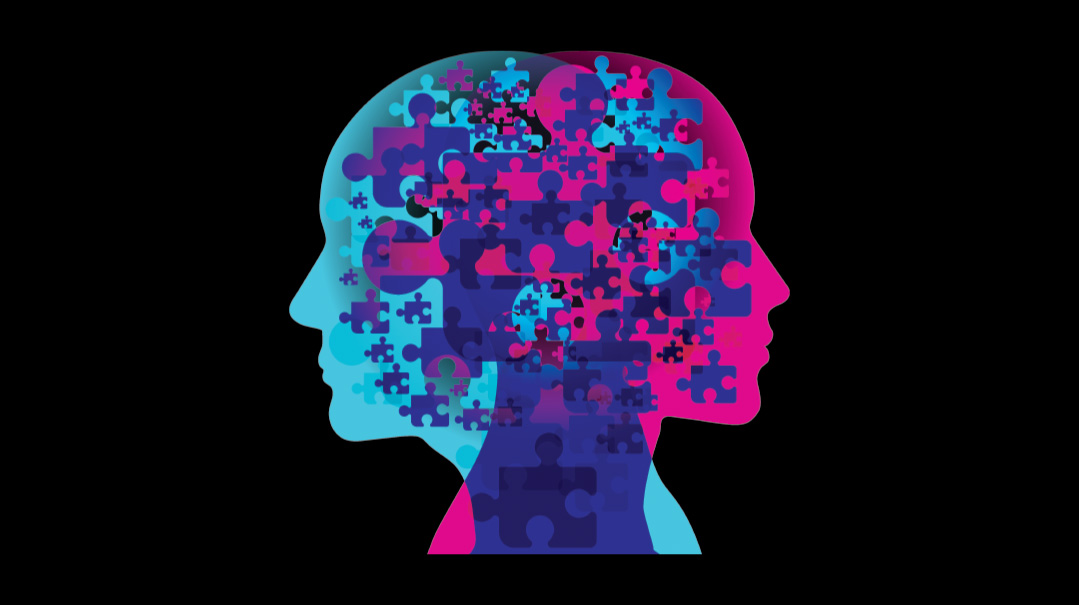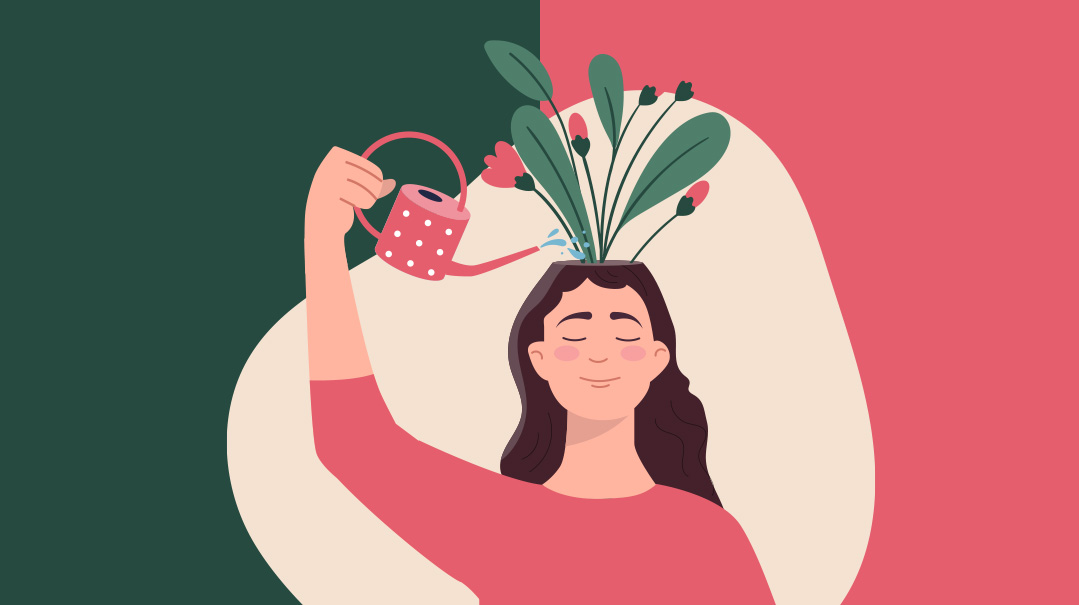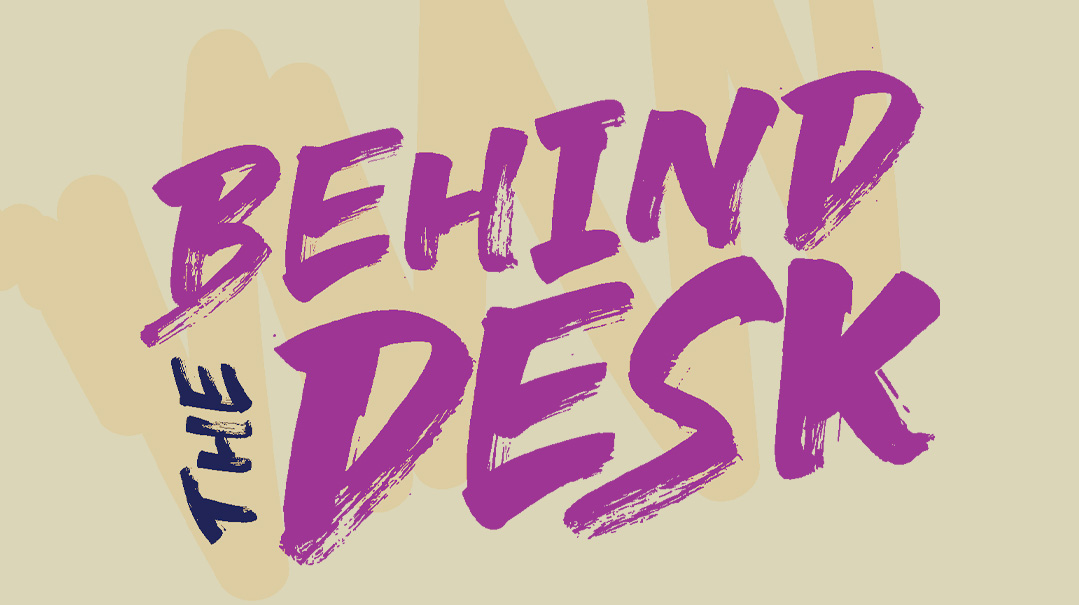When Friendship Hurts
| February 7, 2023What happened to my friend? Why is she acting like this? And why is her behavior impacting me so much?

Something is wrong and I know it. What seemed to be a normal friendship has suddenly changed. There’s confusion, fear, the feeling that “something is off.”
What happened to my friend? Why is she acting like this? And why is her behavior impacting me so much? I feel like I need to do something — but what? And…I’m afraid it’s my fault
Challenging Years
Unfortunately, nowadays mental health challenges are rampant. The teenage years can be especially volatile due to normal hormonal changes, and although transitions and adjustments are common, they can make life that much more stressful. Knowing that some forms of anxiety and low moods are normal is helpful for teens as they navigate high school and the constant changes in their lives.
Much has been written about the challenges and difficulties of suffering from anxiety, depression, and other mental health problems. But what about the friends of those dealing with these challenges? One day their friend is happy and settled, when suddenly things completely change, leaving her friends puzzled and afraid. What happened?
It’s hard to know what’s going on, and you don’t want to pry when it might be something that’ll blow over by next week. But you know your friend and you know something’s off. What should you do?
Signs to Look Out for
Is your friend always looking miserable?
Does your friend often tell you she’s worthless or failing?
Is your friend suddenly uninterested in previously favorite pastimes?
These could all be indicators of anxiety or depression. However, before you start labeling all your friends, remember that everyone has hard days, and people mature and change as a result of external factors that have nothing to do with mental imbalance. Still, if you notice these low moods constantly, perhaps it’s time to seek some help.
Can I Help?
As a teen, you have a lot to offer a friend going through a hard time. You understand her, accept her, and already have a strong bond with her. That is huge. She may be going through a particularly rough time and just needs patience and time to get through it, with a caring friend at her side. Remember, not all depressive feelings indicate clinical depression (which may indicate that medication or other forms of treatment are needed). Your role is to be supportive, caring, and accepting.
Shira is a teen who went through a depressive episode while in seminary. “It was awful and I can’t deny that,” she says. “But the worst part of it was that I didn’t know what was wrong with me, and none of my friends knew what to do.”
Many teens in this kind of situation are afraid. They might not know that the feelings they’re experiencing are anxiety, depression, or a mental illness. They could be regular, healthy girls — just like you — and suddenly they seem to change. It’s hard on them and hard on their friends who are left confused and in the dark.
“In hindsight, I should have asked for help,” Shira admits. “It was rough for some of my closest friends who didn’t have a clue how to deal with this sort of thing — especially so far from home and without family support nearby.”
So how could her friends have helped?
“I remember that some of my friends were really caring. Not pushing me to share, and just being there for me. One friend gave me a card that said, ‘Thinking of You!’ on it. I was so touched. I didn’t need my friends to be my therapists — I already had one by then. I needed them to make allowances for me when I was down, to be nonjudgmental, and to listen when I needed to vent a little,” Shira explains. “It must have been really hard for them though,” she muses.
And it is. It’s hard for anyone to watch a friend in such a state.
Malka’s Story
I wish I could say I didn’t know. But I did. It was subtle at first; I almost didn’t notice it. The absences from school, the veiled references to weird stuff. I ignored it at first though, because that was what Rikki was like. She’d never been, you know… regular. We were friends out of pity at first. I was always the type that befriends the kid on the side who looks lost on her first day of school (even if that first day was my own, too), and Rikki looked seriously lost that first day of ninth grade.
Somehow, that pitying friendship lasted more than a day, more than a year. We were still friends the whole way through ninth, tenth, and even eleventh grade. Until we weren’t. It happened slowly, a gradual withdrawal, so slowly I almost missed it. I saw her around. We were friends, we assured ourselves regularly, and then less regularly, until I almost didn’t notice that she wasn’t there anymore.
But then the bombshell dropped. I was sitting in class, it was one of those pre-summer days where it’s just too hot to sit indoors and learn. When you’d rather be on a beach with a great book. But the only book in front of me right then was a math one and I hated math. The teacher droned on about geometry as I drifted in and out of the lesson, when suddenly our mechaneches walked in. We were all glad for the change in topic and we sat up in our seats eagerly. We wouldn’t have minded even if it was gonna be something like, “You have to clean up after yourselves.” But what she told us was so unexpected and horrible that we all wished we’d been told off, rather than told this news.
“Your classmate is in the hospital,” she began. We looked around. Who wasn’t in school? And then it hit me. Rikki. She hadn’t been there for ages. She’d looked spaced out for so long. It had to be her. It was. The mechaneches’s words punched me in the gut. Why hadn’t I realized? The girls turned around to look at me but I just looked back blankly. I could feel their stares boring into me, heard their silent question: Why don’t you know what’s going on? All I could do was shrug my shoulders and imagine the worst.
No one told us what was wrong with her. Speculations flew around but the teachers were saying nothing. We pouted, we begged to know. We were mature girls — eleventh grade isn’t elementary school. But they wouldn’t tell us. In retrospect, I should have known, should have realized.
Thoughts went through my head. Did she have cancer, chas v’shalom? Was that why she was always so lethargic? Maybe she had some kind of strange disease? I didn’t buy that either.
Life continued as though it were regular, as though it wasn’t true that my best friend was lying in a hospital bed and I had no idea how to get hold of her. Somewhere, at the back of my mind, I wondered if she was still my “best friend.” We’d grown apart, hadn’t we? But her illness brought her to the forefront of my mind. Of course; we were best friends!
I wrote her letters. I poured my heart and soul into those pages. Wrote them with tears in my eyes that I quickly wiped away, lest she realize I was crying for her. No, these letters had to be positive, cheerful. I doubted anyone ever read them but I still sent them faithfully.
I pleaded with my parents, with the school, to be allowed to visit her but I was refused. I was wounded. How could they deny me such a thing? We were best friends, were we not? One teacher tried to listen to me when I cried to her. She told me Rikki wasn’t up to visitors, but she’d let me know when she was. I had to accept that answer although in my heart I felt I just had to see her. If only I would be let in, I’d bring her joy, I’d bring her news, I’d care, and then… wouldn’t she get better?
I wish I’d seen the signs. Wish I’d known.
As summer and then the Yamim Noraim passed by with no word, no sign of Rikki, I tried to move on. School was busy with tests, and 12th grade was major. I felt sorry for Rikki, who was missing her senior year, and a twinge came over me every time I thought of her, but I couldn’t live in the past, could I? So I got busy with other stuff. Tests, chagigahs, shabbaton, and of course, applying to seminary. Life as a 12th-grader was nuts. There were days I forgot about Rikki altogether and other days when I felt so guilty for not remembering her, not thinking of her plight, that I felt like I was going crazy.
Until one day. The mechaneches called me to her office along with Libby, another girl from my class. We wondered what we were wanted for, but we didn’t have long to wait. She told us we could go visit Rikki the next day, provided we got our parents’ permission. We’d be leaving in the middle of school. The long-awaited moment stared me in the face but I had nothing to say.
Libby and I spoke briefly about our plans. She was a cute girl I had little to do with — we weren’t close or anything. But she was reliable, mature, and friendly. I knew she’d been chosen because of those attributes, and because she was very nonjudgmental. I appreciated that and also felt grateful that I wouldn’t have to go alone. After nearly six months, I admit I was scared to see Rikki again. What would she look like? Would her body be ravaged by treatments? I had no idea what was wrong with her. In retrospect, I wish the school had prepared us and told us what to expect — perhaps then the meeting wouldn’t have been so terrifying.
Libby and I walked over to Rikki’s from school the next morning, wondering what to expect. We came up with topics to talk about, tried to recall the class news, and promised to be cheerful.
Knocking on the door, I almost felt like running away, but it was too late. Rikki’s mother ushered us inside warmly. There was trepidation in our steps; we had no idea what we would face.
Rikki’s room was exactly as I remembered it. On a chair, sat Rikki. I swallowed hard and forced a smile on my face. Her mother told her to say hi, but Rikki ignored us. She ran from the room as soon as we walked in. I held my breath as her mother apologized for her. We sat awkwardly, waiting for Rikki to return, making small talk with her mother.
When Rikki returned to the room she did say hello but she was everywhere. Her eyes darted suspiciously, her face taut with nerves, her sentences incoherent. What had happened to my friend? I swallowed and tried to chat, tried to get a smile back on her face, but I could not. It was as though my friend was locked in a strange body that was claiming her personality, her brain, and her life. I was devastated. Now I understood why the school hadn’t allowed me to visit. Why had no one told me she was mentally ill?
Libby and I returned to school, barely speaking, our innocence shattered. The other girls asked us how it had gone but I couldn’t talk. Inside, my heart was crying, burning with questions. The whats, the hows, the whys bothered me to no end, and though days and weeks passed, I couldn’t get the image of Rikki out of my head. She haunted my days, she haunted my dreams. And through it all, my heart was filled with guilt. Maybe it was my fault?
Maybe I shouldn’t have let her drift away. I was convinced she got sick because I wasn’t in touch when she was missing school, or didn’t talk to her enough. Surely I could have prevented this from happening? Hadn’t I seen her acting strangely? Why hadn’t I helped her?
My heart knew those thoughts were wrong, but I couldn’t help thinking them. No one seemed to be there to comfort the grief I felt. It was grief: it was grief for a friendship that was lost, grief for my innocence that had vanished, and most of all, grief for a girl locked inside an illness she could not combat on her own.
Racheli’s Story
My friendship with Chavi has had its ups and downs. We’d been together throughout elementary school and then moved on to high school together. I thought I knew her, but I was in for quite a surprise.
High school’s tough on everyone and it’s easy for girls to be stressed out and a bit down sometimes, so I thought nothing of it when Chavi started having some really hard days. As a good friend, I tried to anticipate what she would want from me, so I would sit and be sad with her (something I learned later was not a good idea). But the down days became more frequent than the up days and the sadness would not leave her eyes. I could see that although she was with me physically, her mind wasn’t there at all.
At recess, Chavi would stare at the walls and the floor, sitting by herself in the corner. She was difficult to talk to and just plain miserable. When she started skipping classes and even days of school, I was at a loss as to what to do. Something was definitely off.
I tried to ask her what was wrong, but she shrugged me off — she didn’t want to talk about it. However, as time went on, I realized that whatever “it” was, it wasn’t going away so fast. I was scared. Her attitude was weird. We’d talk, she’d share a little and then she’d just be like, “Whatever, it’s fine, whatever.” She was really spaced out.
I kept the worry buried in my heart, though. It wasn’t my secret to tell, and wasn’t something anyone could snap her out of, it seemed. I waited… maybe she’d get better on her own? But she didn’t — things just got worse.
So with a heavy heart, I went to my mother and asked if we could talk. Talking about this kind of stuff is hard for me. Feelings are personal and I’m a private person, but I was afraid. I had to do something about this, as I could see things were spiraling out of control. Sometimes, when I thought about the stuff I’d heard from her, I, too, began to feel pretty depressed.
But then things took a turn for the worse. Chavi didn’t come to school for over a week. I thought she was just sick so I called her to casually ask how things were going.
“I’m fine,” she said, her voice far away. “Just a bit too sad for school, you know?”
We all have our off days, but this seemed to be going a bit too far. “Chavi?” I asked hesitantly. “Do you need help? I mean, you could always talk to me—”
“Nah,” she assured me, “it’s nothing.”
Really? It’s nothing? Comprehension dawned, and that’s when I realized that I was in this far deeper than I thought.
One night, Chavi, another friend, and I had a slumber party. In hindsight, I don’t know how my parents let me go. Maybe I hadn’t told them how bad it was. Chavi sat down on my bed to chat, but I wanted to edge away — this was too much for me. I couldn’t be enveloped in a cloud of sadness like this. How would I get through the night? I escaped to the shower and found out afterward that she’d used the time to tell the other girl her life story. All her worries, fears, and anxiety came out. The other girl — terrified — reached out for help in school the next day, and the school began offering counseling to anyone who felt they had been affected by her.
When she eventually came back to school, I tried to be a good friend, I really did. But it was so hard. By now I was scared to be in her presence. You cannot imagine the effect of constantly being with someone who’s down all the time. And then, the attacks started. I think they were panic attacks but they were probably more than that. She’d get all spacey and sad for days on end. She’d cry and cry and cry and wave her arms around in distress. I was terrified when this happened but by now the school knew what was going on. Sometimes another girl and I would run to get a teacher. What could we do for her beyond that? I felt so helpless. The only thing that reassured me at that time was knowing that she was getting help from people who knew more than I did.
I finally worked up the courage to go talk to a therapist about it. She tried to help me through the experience and look at the whole thing differently. I actually became closer with Chavi during this time because I felt able to understand her better, and I was less scared once I learned about what she was feeling. I learned to anticipate her reactions, and to steer clear of anything that would stress her out.
From the beginning, I felt that Chavi was changing as a person and that was frightening for me. My therapist taught me that it wasn’t Chavi who was changing, it was her illness talking. Deep down, Chavi was the same Chavi she’d always been, just hidden beneath the monster that had overtaken her for now. I learned not to take her illness personally; she didn’t act like this to spite me or to hurt me. But more importantly, I understood not to feel guilty, thinking there was something I could have done that I didn’t do. This wasn’t my fault and it never had been. It was Chavi’s illness, not mine.
The whole experience has made me more aware of mental health. Sometimes, we look at people strangely when we see them acting weird. I think we have to remember that maybe this person is going through a challenge and she’s still a regular, nice teen — just like you.
Not only did my experience make me see others differently and be more sensitive to their suffering, I also discovered a lot about myself. I learned how to recognize and express my own feelings. I learned when it’s a good time to seek help for something, when not to keep it all bottled up inside. I think it’s hard for teens to talk about stuff because they feel embarrassed and find it hard to share their emotions. I’m grateful that Chavi’s illness taught me how to be more open and self-aware.
Chavi’s not completely back to herself but she’s getting better. I see her in school every day and she still has her ups and downs. But now I know when to keep my distance and when to draw her close. I’ve learned to be as cheerful as possible around her and to encourage her as much as I can. If she has a flare-up in school, I go and tell someone, rather than trying to deal with it myself. One important thing I learned is that I cannot be her therapist. She wants me as her friend — nothing more.
And it’s hard. It’s challenging. I haven’t enjoyed this journey at all, but when I look back I can say I’ve for sure grown from it. My motto right now is to remember that “what we go through, we grow through.”
I want teens out there to know my story because so often we hear about girls going through stuff like mental illness but actually it’s really, really hard for their friends, too, who are watching them, helpless and afraid. We may not be the sick ones but our hearts are aching, too.
Practically Speaking
While these stories are true accounts of two girls’ feelings as their friends went through a mental illness, one important thing to note is that no case is the same. There are many forms of mental illness, some more invisible than others. Depression, for example, often looks a lot milder than these cases, and doesn’t usually get to the point that someone needs inpatient treatment.
Don’t panic if you see signs of something you’re worried about in a friend. The stuff girls can go through in high school, such as regular anxiety and mild depression, are very, very normal and treatable. Everyone has their ups and downs, and sometimes it takes people that much longer to ride the waves.
But, knowing what is and what isn’t a red flag is a helpful start.
*All names changed.
To Tell or Not to Tell
“I was so angry when my friend ‘told on me’” Shira says. “I felt like she betrayed my secret, even though inside, my heart was crying for someone to help. When I look back, though, I’m actually really grateful. If not for her I don’t know where I’d be today.”
Many teens going through a difficult time try hiding these facts from others. It’s awkward and embarrassing to admit you need help. Sometimes, being the best friend you can be means telling someone, even if your friend begs you not to.
When I was growing up, my mother would often drill into me her idea of “good secret, bad secret.” Her point was this: A good secret is one that will eventually be revealed, such as a surprise, an engagement, a baby, etc. A bad secret is something that weighs you down, that no one must figure out, ever, that makes you feel plain uncomfortable.
A secret about your friend’s depression, anxiety, or any other mental illness — good secret or bad secret?
Yeah, it’s hard. What are they going to do to me when they find out that I was the one who told? I don’t want to be involved. But she trusts me. I know better than anyone else how to deal with her. Excuses abound and they’re valid, and those reasons may be true. But the agony and confusion and perhaps the later guilt — make it worth telling. Because you’ll save your friend and you’ll save yourself.
For the Friend:
It’s scary and challenging to watch someone suffer through depression. Remember that adults know what this is and can help, even if it takes time. The ability to be there for another person while still maintaining your own needs is a great skill to build. Trust Hashem to manage the situation!
—Tali Arieff, LCSW
Racheli’s Tips for Coping
Speak to an adult you trust. You’re also suffering even though you’re not the one who’s officially sick.
Try to speak to someone who’s been through a similar experience.
Write down your feelings — no one has to see your private diary, but it helps to get it out of your system.
Do things you enjoy, like listening to music or going for a walk. Sometimes I found that the faster the walk, the better — it gets all the tension out.
Ask your friend what she wants. Some people want their space, but others like to talk. Find out what your friend needs.
Act cheerful around her! Don’t let her draw you into her depression.
Try to talk about things other than what she’s going through, and distract her by doing fun activities together.
Things to Remember If Your Friend Is Experiencing Anxiety, Depression, or Mental Illness
It’s not your fault. Your friend may be sick, but you didn’t cause it. If she had some other kind of disease, would you blame yourself? Unlikely. This is not something you can control.
Remember that she’s hurting. She didn’t choose this, although sometimes it can seem that way.
Be patient. She’s not herself right now but she still wants to hear from you, even if it doesn’t seem like she cares anymore.
Most importantly: Take care of yourself. This is affecting you, too, even if you’re not the one officially struggling. Take time out for self-care and if it gets too much, talk to someone you trust.
Q and A with Tali Arieff, LCSW
How can I tell whether my friend is just a bit down, or if she’s actually suffering from depression? What are the signs?
Depression is characterized by change. So if you have a friend who’s always been more negative by nature, or one who doesn’t enjoy happening social events, that’s just her personality. But someone who loses interest in things that used to be important to her, who no longer participates in activities she used to enjoy, who isn’t eating or sleeping like she used to, may be experiencing depression.
Lots of kids (and adults) will experience what’s called situational depression, which is when a person is sad and down because something hard or challenging is going on their life. This is totally normal. Usually, once the triggering event passes, the person will get back to themselves with time.
Many of us have times we struggle with feeling sad or lethargic without a major trigger. This is part of the human experience and doesn’t require clinical intervention, though of course if someone wants help with these hard feelings, they should reach out to a therapist.
Depression that is of clinical significance also varies greatly. You can have a girl who sits next to you in math class who’s outgoing and successful and totally part of things, but inside she has constant, repetitive sad thoughts. She may not let it show, but inside she may be suffering. You’d be very unlikely to pick up on this.
More serious depression will often start to show clearly. Your friend may struggle with maintaining a daily schedule, so she may take off a lot from school. She may often seem down or not want to join activities. Her clothing choices and conversation may seem less upbeat and happy. She may spend more time in bed and have difficulty getting up.
There is so much help available for depression. People with depression often live very healthy, productive lives. The extreme portrayal in these articles is thankfully not what most people will experience, even if they do experience depression.
What should I do if I notice that my friend might be suffering from anxiety, depression, or something similar? Should I spend time with her, or is it better to keep away so I don’t also get depressed?
I have seen so many teens get completely enmeshed in their friends’ mental health struggles. Remember, it’s not your job to keep anyone safe. It’s not your job to make anyone happy or healthy. Even if the depressed individual makes you feel like your friendship is the only thing keeping her going, it’s important to just be her regular friend, not her caretaker-friend, and not her therapist. You won’t help her (even though it may feel like you are), and you’ll make yourself unwell.
After checking that an adult is aware of the situation and getting help for your friend, your job is to just be nice, friendly, and supportive. A regular friendship.
Because a regular friendship can do so much for her! Call when she’s absent, invite her again and again even if she turns you down, show her there’s a life and friends waiting for her whenever she’s up to it. This will give her motivation to get better. But only she can do that; you can’t do it for her! So just invite her. Just check in. Don’t try too hard to “make” her do anything — only she can do that for herself — and don’t spend more time with her than with your other friends.
Is it normal that I’m having such a hard time when it’s my friend who’s struggling, not me?
Yes, of course. It’s extremely painful to watch someone suffering with any sort of illness, and especially one taking place on a personality and mind level. And being around someone who’s in a dark place is certainly not going to make you feel cheerful. That said, maintaining the friendship, with boundaries, and in a way that is appropriate, is a chesed and a help for her, and may help you grow as a person as well.
My friend is depressed and I feel it’s really impacting my life. How can I help myself get through this hard time?
Watching someone struggle is always going to be painful and hard, but you need to know when you’re crossing the boundary between watching someone struggle and struggling yourself. If you find that your own ability to get through your day is compromised, or that your mood is dependent on how well your friend is doing on any given day, or that you’re always on alert for her calls and texts, or that you find yourself spending quite a lot of time or emotional energy on her feelings — then you’re over the boundary of healthy helping.
You need to set serious limits to keep yourself healthy. Some teens who struggle with this go for a few sessions to a therapist of their own to get support. Others need to read books of chizuk or emunah, because they find themselves faltering as they watch their friend struggle. Self-care in the form of time and activities with friends who lift you up is also important.
This is true, by the way, for anyone dealing with a loved one struggling in any capacity, not just those who have a depressed friend. Remember the famous Three Cs: “You didn’t Cause it, you can’t Cure it, you can’t Control it.” Offering support is great; making the issue your own problem is not healthy (and also doesn’t work). Daven to the Rofei chol basar, because He can bring healing. You can’t.
Can you offer some chizuk for a girl in a situation like this?
For the sufferer:
Many great, accomplished, and choshuve people have struggled with depression. Don’t ever forget this. In fact, maybe for some people, the process of building themselves despite their depression contributed to their greatness.
You are not in any way less as a person because Hashem chose you for this incredibly painful nisayon. Depression is not your fault, it’s your challenge.
If you feel like you’re not safe, reach out to someone.
Remember, there is life after depression. You can come out on the other side and be healthy and happy and whole.
Even while you’re depressed, or even if your depression comes and goes, you can build a meaningful and joyful life.
Be patient with the process. Therapy, medicine, and new techniques that are constantly emerging do help.
Every time you can engage in a conversation, a social event, an exercise or sport, or a creative activity, you are fighting against and lessening your depression. Keep trying and keep going.
Listen to your inner self. You may have pain and hurt feelings that need to come out.
(Originally featured in Teen Pages, Issue 947)
Oops! We could not locate your form.







